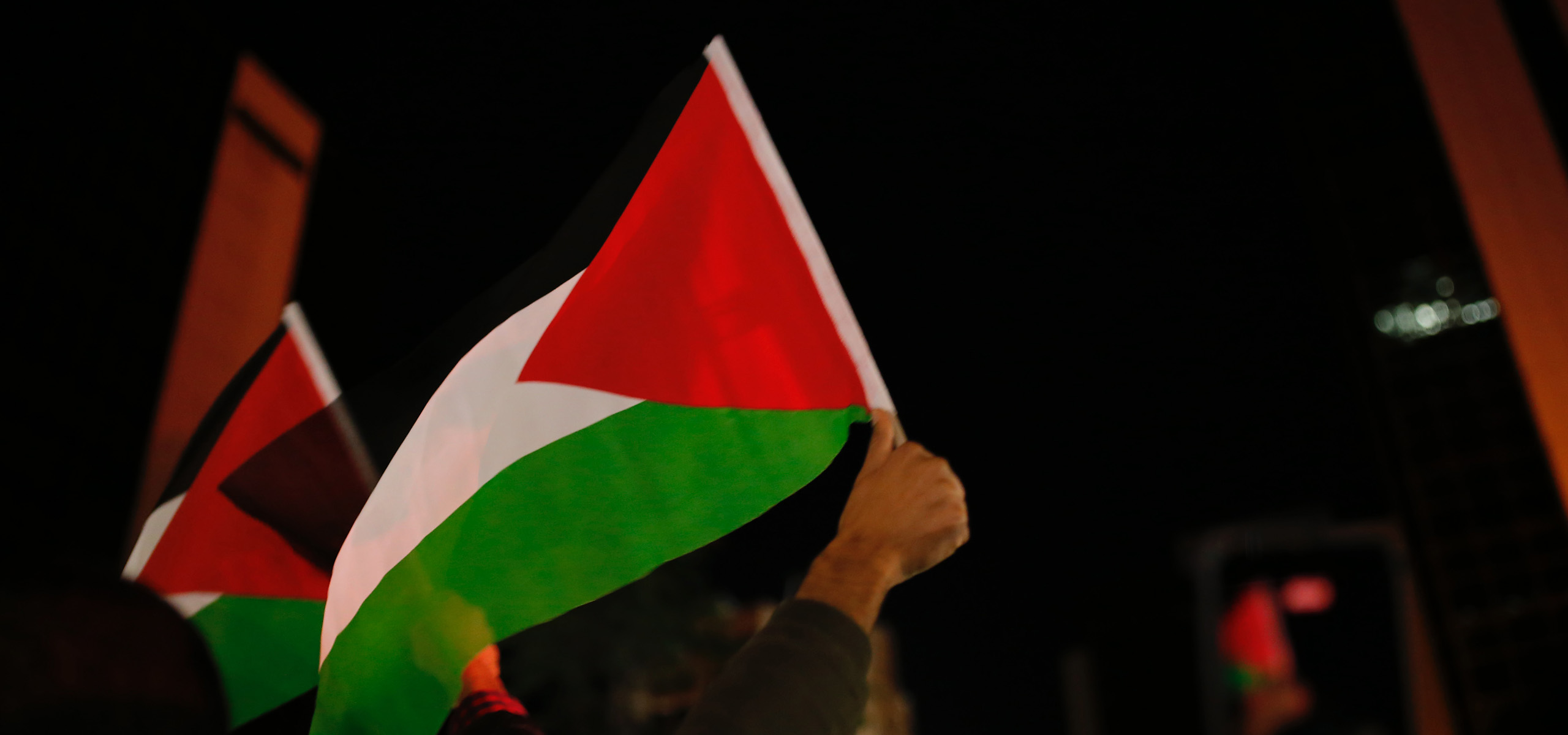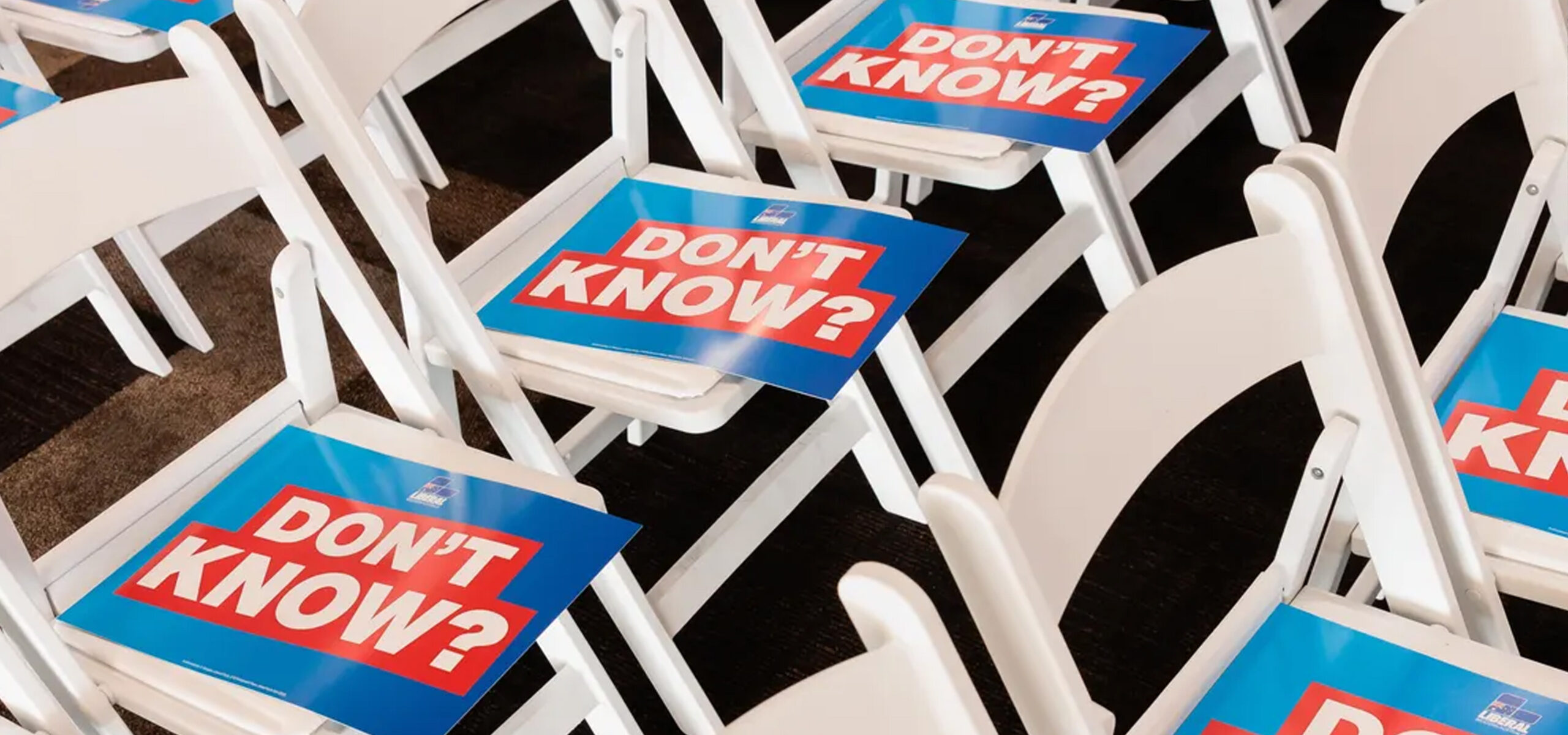Empathy Across Group Divides: Reactions to the Israel-Palestine Conflict

The Israel-Palestine conflict is polarising people’s attitudes and emotions across the world. At a macro level, this is showing up in fractures across and within countries, as well as inside many political parties in the West. On a micro level, it is showing up in day–to-day sensitivities and, at times, emotionally-charged conversations in offices, dinner parties and other gatherings. Quite simply, the same events unfolding on our TV screens can elicit dramatically different responses in people.
So why is this happening and how should one manage this in day-to-day interactions as the crisis evolves?
Research into the science of empathy and how it is affected by group identification sheds some light on this issue. Empathy is a core component in helping us live together, but it does not radiate evenly or smoothly out to the world as we process events. In fact, research shows that a significant barrier to empathy is the level of group identification we feel towards another person.
Research into mirror neurones illustrates this point well. Essentially, mirror neurones fire in sympathy as we observe the emotions and actions of people around us. This enables two of the most important functions in human development: Vicarious learning by watching others’ behaviour, and empathy. The neuropsychologist V.S Ramachandran calls mirror neurons the ‘Gandhi Neurons’ because of their critical role in sensitising people to the feelings of others.
If you see someone’s hand being pricked by a needle, most people will wince with sympathetic concern. This is in part driven by our mirror neurones firing as we observe the event. However, something strange happens when group differences are introduced.
In a seminal experiment, white subjects were shown a white hand being pricked and mirror neurons dutifully fired in sympathy. However, when the same people saw a black hand being pricked, the mirror neuron response in white subjects was severely attenuated – and in many cases, non-existent.
Interestingly, the same study showed that mirror neurons came back to life in people who saw a purple hand being pricked, supporting the theory that it is real-world intergroup differences that suppress neuronal firing. On the other hand, purple is not associated with any recognisable group in our world, so purple hands didn’t activate an outgroup schema.
But why is empathy so conditioned by our sense of group belonging?
Well, encounters with other groups in our evolutionary past were often a zero-sum game, involving a strong likelihood of conflict. Evolution has therefore conditioned us to suppresses our empathy for people on the other side of any perceived intergroup divide.
In my book ‘Cultural DNA,’ I argue that tribal group identities are never far from the surface, but that in our modern, interconnected world they are often not that useful or desirable. I also argue that such identities are nested, dynamic and subject to change. We can at one point identify with our family, tribe, wider nation, our broader ethnic group or the whole human race depending on circumstance. The emotional impact of events will depend upon which schemas are activated by particular events.
Ideological differences also influence where this identification settles. Typically, liberal, left-leaning individuals define their group more widely and often extend it to the whole human race. Those on the right typically draw the circle a bit closer to family, local community or their nation state.
This viewpoint helps to make sense of the powerful conflicting emotions raised by current crises in ways that sometimes obvious and at other times, less so.
For example, people often ask why the Israel/ Palestine conflict elicits so much more emotion than other intergroup conflicts such as in Syria or Rwanda?
A common assumption is that this is reflective of liberals displaying double standards, fuelled in part by underlying antisemitism. However, a much simpler explanation is that the conflict activates a schema of Western colonial and expansionist instincts colliding with the interests of poorer people of colour. This is a universal schema against which most of the world can align on one side or another. No such universal schemas are activated by religious or ethnic conflicts in Syria or Rwanda.
Now think about how you see people reacting either in the media or in your personal life to the Israel-Palestine conflict. I’ve observed that those who are Jewish, married to a Jewish person, strongly identify with Western national identities or believe in the ‘civilising’ mission of the West, are more likely to be more sympathetic to the Israeli position (though not without sympathy for the Palestinians). Conversely, Palestinians, Muslims or those from the global south or ethnic minority backgrounds (where the memory of colonialism sits deeply), are more likely to feel deep emotional sympathy for the Palestinians. Of course, this is a simplification which in reality is more nuanced.
Age also is a factor. Opinion polls in all Western countries consistently show younger people are significantly more aligned to the Palestinian side. This is almost certainly driven in part by the fact that age is associated with identification with a more global and less nationalistic outlook (remember the Brexit vote in the UK). Another factor is that older people may have a schema of Israel as a plucky, isolated country fighting for its survival (based on its early history), against which events are viewed. Younger voter’s experience of Israel has largely been formed after Israel became the dominant military power in the Middle-East and after the strong rightward shift in its politics.
This asymmetry likely also explains Joe Biden’s strong and largely uncritical support for Israel which has frustrated and bemused younger, Democratic voters and reinforced concerns about his age and out-dated world view.
Intersectionality also applies. If you are a liberal and Jewish, your typical universalistic identification may well collide with more narrow tribal instincts. Your values may point you in one direction but your mirror neurons may be internally screaming at you to identify with your tribe. If you are also young, these contradictions may be even more acute. All this may well lead to considerable internal conflict, a tendency to embrace complexity where others see things more simply, as well as various other contortions and rationalisations that may leave your traditional liberal allies bemused or relieved, depending upon where you eventually decide to settle.
For Western observers, there is also the risk of being out of step with global public opinion. The Israelis are more ‘Western’ than the Palestinians, richer and have lives with which we can identify with more easily. The Palestinians on the other hand have a more ‘alien’ religion, are much poorer and quite simply look less like us in terms of their lives. So, while we might think we are being fair-minded, neuropsychology would dictate that in such circumstances a Palestinian life for the average Western observer is likely to count less in terms of base empathetic neuronal response than an Israeli life. In our reactions we need to guard against this bias tilting our emotional reactions.
This is particularly important because there has always been a perception of the West within the global south – fuelled by the experience of slavery, domination and colonialism – that its professed universal values are all too frequently hypocritically and selectively applied. It does not take much for this latent perception to rise dramatically to the surface again, with serious consequences for the West’s global standing.
Now before you throw your hands up in despair about the impossibility of any divides being bridgeable, there is also something deeply positive about the research on neuronal empathy. If people are nudged or educated to see someone’s humanity beyond their group identity, i.e., through provision of interpersonal information or sharing of experiences or personal connection, the suppressed mirror neuronal responses to perceived pain in other’s spring to life again.
So, how should one deal with these conflicting emotional reactions and divisions?
Firstly, it is important – however strong your internal conviction of being ‘right’ is – to ask what biases might your natural identifications be introducing?
Secondly, remember how your mirror neurons may be shaping your emotional empathy and dig deep to see the pain the other side may be experiencing. Show this empathy openly in dealing with people who have conflicting views to yourself.
Thirdly, push yourself always to see the common humanity of everyone involved in this tragic turn of events. Only by attending to these points can we hope to turn the wheel in a more constructive direction as the future unfolds.

